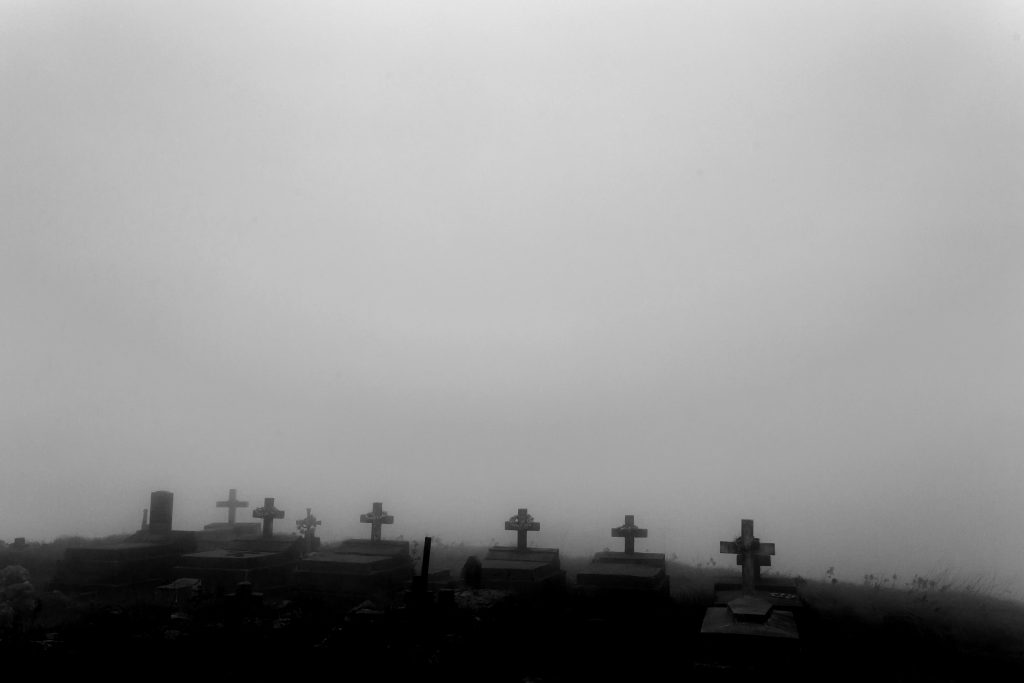Reclaiming the solemnity of sin and death
You could fill a library with books about all the things the Irish get wrong. You’d probably have to build an extra wing or two onto your library with books by Irish authors and playwrights chronicling the pathologies of the Irish ever since the English language was imposed on them by royal edict and they adapted, making the language their own.
One thing the Irish used to get right, though, was death. Not sure if the present state of the Emerald Isle still has a handle on this, based on its recent referendum in favor of infanticide. What they got right about death in the not so recent past though, has something to say about how our culture, and the present crisis in the Church may be getting things wrong.
I speak of the cultural phenomenon of the Irish wake. The Irish American version I am familiar with usually took place the day before a funeral in the aftermath of the recitation of the rosary.
There is no other way to describe a wake other than a party. For me they resembled every St. Patrick’s Day party in my youth. There was music, loud voices, and competitions for recollections. During a wake, the memory of the deceased, whose “big day” was after the next dawn, was fondly remembered with laughter … tears would come later.
For as loud and raucous the wake the night before, the funeral Mass day would be the opposite end of the spectrum. I am just old enough to remember funerals when the priest wore black and there were no hints as to a funeral being anything like a “celebration of life.” It was a prayer for the dead.
There was a casket with a dead body in front of the altar. I’ve been to a lot of funerals lately where there are no bodies, just picture montages of the deceased in happier times. Some of the funerals I’ve been to feel and sound more like retirement ceremonies.
The body inside the church helps reorder our thoughts. It’s not there for us to think, “There but for the grace of God go I,” but rather to understand, “There, with or without the grace of God I will be someday.”
Today the culture doesn’t want to be reminded of death or the reason death exists in the first place. OK, maybe the first 1,950 years of the Church there was overemphasis on sin and damnation, and maybe someone smarter than me can tell me that kind of thinking may have led to the Spanish Inquisition or something.
But maybe we can also suggest that the last 50 years of peace, love, and understanding, and celebrations of life at funerals has led to the mess we are in today.
Imagine if the secret life of Theodore McCarrick was not known until after his funeral. His funeral would have been one of those celebrations of life, with funny stories about him, and every priest in attendance in white and everyone assured that the late cardinal was smiling down from heaven. And everyone would have had one of those “I’m OK, you’re OK” feel-good moments.
A wise priest I knew had a big problem with that “philosophy.” He said to me once that if “I’m OK, and you’re OK … what is Jesus doing on the cross?”
If it was an “old fashioned” funeral, those stories would have been told the night before at the wake and the funeral would have been a solemn event to pray for his soul. Which one of those scenarios would benefit Theodore McCarrick best? Fortunately for Theodore McCarrick, God has given him more time to make amends and do his penance.
That nasty three-letter word “sin” just won’t go down without a fight. It is because of sin that we must go to funerals and think about our own mortality. When things were bleaker, it helped concentrate the senses. All the white vestments and happy music don’t stop the weeping anyway.
So, whether we go gently or not so gently into that good night, maybe it’s time to reclaim some of our older traditions of solemnity at funerals. People will be crying anyway — we may as well try to give that natural feeling of mourning a more fitting receptacle.
What I know about fashion you could fit in a thimble, but I’ll also suggest a bold fashion statement for funerals as well: basic black.
Robert Brennan is a weekly columnist for Angelus online and in print. He has written for many Catholic publications, including National Catholic Register and Our Sunday Visitor. He spent 25 years as a television writer, and is currently the director of communications for the Salvation Army California South Division.
SPECIAL OFFER! 44 issues of Angelus for just $9.95! Get the finest in Catholic journalism with first-rate analysis of the events and trends shaping the Church and the world, plus the practical advice from the world’s best spiritual writers on prayer and Catholic living, along with great features about Catholic life in Los Angeles. Subscribe now!

